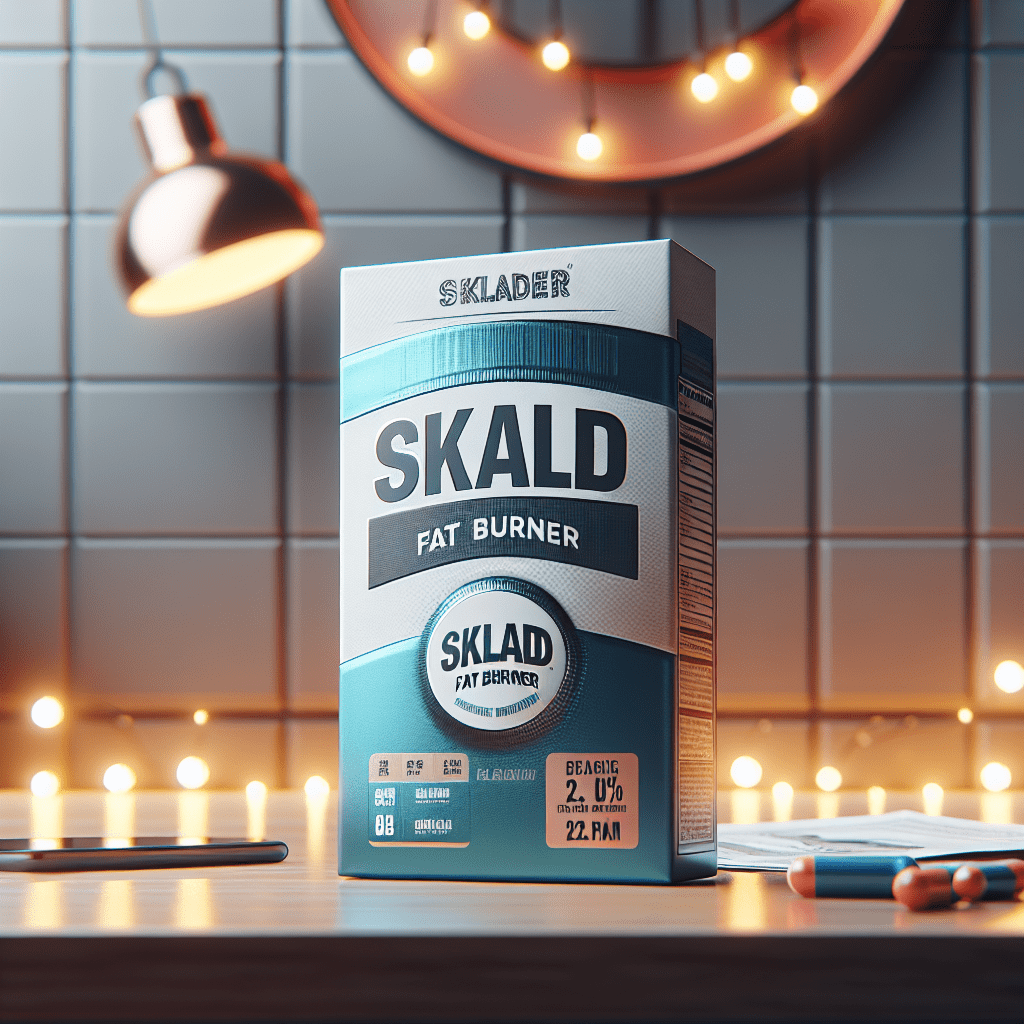Have you ever wondered if fat burners actually live up to their claims? With the never-ending search for weight loss solutions, it’s hard to ignore the allure of fat burners. But do they truly deliver the results they promise? In this article, we delve into the effectiveness of fat burners, separating fact from fiction and providing you with valuable insights to help you make an informed decision on whether they can truly aid in your weight loss journey.

Table of Contents
Understanding Fat Burners
What are fat burners?
Fat burners are dietary supplements that are designed to help promote weight loss by increasing metabolism, enhancing fat oxidation, and suppressing appetite. They usually contain a combination of natural ingredients and can come in various forms, such as pills, powders, or liquids.
How do fat burners work?
Fat burners work through different mechanisms to help facilitate weight loss. Some common ways they work include:
- Increasing metabolic rate: Fat burners often contain stimulants that can boost your metabolism, causing your body to burn more calories throughout the day.
- Enhancing fat oxidation: Certain ingredients in fat burners can increase the body’s ability to break down and utilize stored fat as a source of energy.
- Suppressing appetite: Many fat burners contain appetite-suppressing ingredients that can help reduce cravings and excessive calorie intake.
Types of fat burners
There are several types of fat burners available in the market, each with its own specific formulation and intended purpose. Some common types include thermogenic fat burners, which stimulate the central nervous system to increase metabolism; appetite suppressants, which help to curb cravings and reduce calorie intake; and fat blockers, which inhibit the absorption of dietary fat.
Key ingredients in fat burners
Fat burners often contain a combination of ingredients that are believed to contribute to their weight loss-promoting effects. Some key ingredients commonly found in fat burners include:
- Caffeine: A stimulant that increases energy expenditure and enhances fat oxidation.
- Green tea extract: Contains compounds known as catechins that can boost metabolism and promote fat loss.
- Garcinia cambogia: A tropical fruit extract that may help suppress appetite and inhibit fat production.
- L-carnitine: A compound that plays a role in fat metabolism and can potentially increase fat oxidation.
Effectiveness of Fat Burners
Scientific evidence
While there is some scientific evidence supporting the effectiveness of certain ingredients found in fat burners, it’s important to note that individual studies may have limitations and further research is needed to draw definitive conclusions. Some studies have shown that certain ingredients like caffeine and green tea extract can aid in weight loss, but more research is necessary to establish their long-term efficacy and safety.
Do fat burners actually burn fat?
Fat burners may have the potential to enhance fat loss by increasing metabolism and promoting fat oxidation. However, it’s crucial to understand that they are not magic pills that can melt away excess fat on their own. Fat burners should be viewed as a supplement to a healthy lifestyle that includes regular exercise and a balanced diet.
Potential side effects
Although fat burners are generally considered safe when used as directed, they can cause side effects in some individuals. These may include increased heart rate, elevated blood pressure, insomnia, digestive issues, and jitteriness. It is important to read the product labels carefully, follow the recommended dosage, and consult with a healthcare professional, especially if you have any underlying health conditions.
Long-term effectiveness
There is limited long-term data on the effectiveness of fat burners for sustained weight loss. As with any weight loss method, the key to long-term success lies in adopting a healthy lifestyle that includes regular physical activity, a balanced diet, and sustainable habits. Relying solely on fat burners is not a sustainable approach and may lead to dependency.
Factors Affecting Fat Burner Effectiveness
Individual response
Individual responses to fat burners can vary significantly. Factors such as genetics, age, gender, and overall health can influence how your body responds to fat burners. It’s important to monitor your own body’s reaction to a fat burner and make adjustments accordingly. What works for one person may not necessarily work for another.
Dosage and usage
Following the recommended dosage and usage instructions is crucial for maximizing the effectiveness of fat burners. Taking more than the recommended amount does not necessarily translate to better results and can increase the risk of side effects. It’s important to read and understand the instructions provided by the manufacturer carefully.
Diet and exercise
While fat burners can provide some benefits in terms of increasing metabolism and promoting fat loss, they are not a substitute for a healthy diet and regular exercise. In order to maximize their effectiveness, it is essential to follow a well-balanced diet that includes lean proteins, fruits, vegetables, whole grains, and healthy fats. Combining fat burners with a regular exercise routine can further enhance their effects.
Quality and brand
The quality and brand of fat burners can also impact their effectiveness. It’s important to choose reputable brands that have been tested for quality and safety. Reading customer reviews and researching the ingredients can help you make an informed decision. Additionally, consulting with a healthcare professional or registered dietitian can provide valuable guidance on selecting the right fat burner for you.
Research Studies on Fat Burners
Study 1: The impact of fat burners on weight loss
In a study published in the Journal of Obesity, researchers investigated the effects of a specific fat burner formulation on weight loss in overweight individuals. The study found that participants who took the fat burner experienced a significant decrease in body weight, waist circumference, and body fat percentage compared to those who took a placebo. However, further research is needed to validate these findings and determine the long-term effects.
Study 2: Safety evaluation of common fat burner ingredients
A study published in Regulatory Toxicology and Pharmacology examined the safety profiles of commonly used fat burner ingredients. The researchers concluded that when used at recommended dosages, these ingredients were generally safe for consumption. However, individual sensitivities and pre-existing health conditions should be taken into consideration, and it’s always advisable to consult with a healthcare professional before starting any new supplement.
Study 3: Comparison of different fat burner formulations
Another study conducted by researchers at a university compared the efficacy of different fat burner formulations in a group of participants over a 12-week period. The study found that while all formulations led to some degree of weight loss, there were variations in the magnitude of the effect. This suggests that the specific formulation and combination of ingredients may play a role in the effectiveness of fat burners.

Potential Benefits of Fat Burners
Boosted metabolism
Many fat burners contain ingredients that can increase metabolic rate, leading to a greater calorie expenditure even at rest. This can help support weight loss efforts by promoting a higher rate of energy expenditure and potentially making it easier to create a calorie deficit.
Increased energy levels
Fat burners often contain stimulants such as caffeine or green tea extract, which can provide a temporary boost in energy levels. This can be especially beneficial for individuals who participate in regular physical activity, as it may help improve performance and overall productivity.
Appetite suppression
Certain fat burner ingredients, such as glucomannan or garcinia cambogia, have been shown to have appetite-suppressing effects. By reducing feelings of hunger and preventing excessive calorie intake, fat burners can support weight loss efforts by helping individuals maintain a calorie deficit.
Enhanced exercise performance
Some fat burners contain ingredients that can improve exercise performance, such as beta-alanine or creatine. By increasing endurance, strength, and power output, these ingredients can help individuals push harder during workouts and potentially burn more calories.
Limitations and Risks of Fat Burners
Dependency and reliance
One of the major limitations of fat burners is the potential for dependency and reliance. Relying solely on fat burners without making necessary lifestyle changes can hinder long-term success and may lead to a cycle of dependence on these supplements.
Possible health risks
While fat burners are generally considered safe when used as directed, they can have some potential health risks. The use of stimulants like caffeine can lead to increased heart rate, elevated blood pressure, insomnia, and other side effects. Additionally, some fat burners may interact with certain medications or exacerbate pre-existing health conditions, so it’s important to consult with a healthcare professional before starting any supplementation.
Regulatory concerns
The supplement industry is not as strictly regulated as prescription medications, which means that the quality, purity, and efficacy of fat burners can vary. It’s important to choose products from reputable brands that comply with regulatory standards and have undergone third-party testing.
Lack of long-term studies
There is a lack of long-term studies examining the effects and safety of fat burners. Most studies have relatively short durations, and it’s unclear whether the effects observed in the short term can be sustained over a longer period. More research is needed to fully understand the potential long-term consequences of using fat burners.

Best Practices for Using Fat Burners
Consultation with healthcare professional
Before starting any fat burner, it is advisable to consult with a healthcare professional, especially if you have any pre-existing health conditions or are taking medications. They can provide personalized guidance based on your individual health status and help determine if a fat burner is appropriate for you.
Following recommended dosage
It’s important to follow the recommended dosage and usage instructions provided by the manufacturer. Taking more than the recommended amount will not lead to faster or better results and can increase the risk of side effects.
Combining with a balanced diet
Fat burners should be used as a supplement to a healthy and balanced diet. They are not a substitute for nutritious food choices. Combining the use of fat burners with a well-rounded diet that includes lean proteins, fruits, vegetables, whole grains, and healthy fats can optimize weight loss efforts.
Regular exercise routine
To maximize the effectiveness of fat burners, it is essential to engage in regular physical activity. Combining fat burners with a consistent exercise routine that includes both cardiovascular exercises and strength training can help create a calorie deficit and support overall weight loss.
Alternatives to Fat Burners
Natural fat-burning foods
Instead of relying solely on fat burners, incorporating natural fat-burning foods into your diet can be a healthier and more sustainable approach. Foods like green tea, chili peppers, grapefruit, and lean proteins have been shown to have metabolism-boosting properties.
Regular cardiovascular exercises
Engaging in regular cardiovascular exercises such as jogging, cycling, swimming, or dancing can help burn calories and promote fat loss. Aim for at least 150 minutes of moderate-intensity exercise per week, or 75 minutes of vigorous-intensity exercise.
Weight training and resistance exercises
Incorporating weight training and resistance exercises into your fitness routine can help build lean muscle mass, which can increase your basal metabolic rate and promote fat loss. Aim for two to three strength training sessions per week.
Improving sleep quality
Getting enough quality sleep is essential for maintaining a healthy weight. Poor sleep can disrupt hormone regulation, increase appetite, and reduce metabolic rate. Aim for 7-9 hours of sleep per night and establish a consistent bedtime routine.
Personal Testimonies and Experiences
Positive experiences with fat burners
Some individuals have reported positive experiences with fat burners, noting increased energy levels, appetite suppression, and improved weight loss results when combined with a healthy lifestyle. These testimonials highlight the potential benefits that fat burners can offer when used responsibly and in conjunction with other healthy habits.
Negative experiences with fat burners
On the other hand, there have been reports of negative experiences with fat burners, including side effects such as jitters, increased heart rate, gastrointestinal discomfort, and dependency on the supplement. It’s important to be aware of these potential risks and monitor your body’s response when using fat burners.
Individual variation in responses
It’s important to recognize that individuals can have varying responses to fat burners. Some may experience significant weight loss and positive effects, while others may notice minimal changes or even negative side effects. Factors such as genetics, metabolism, lifestyle, and overall health can contribute to individual variation.
Conclusion
When considering the use of fat burners, it’s important to have realistic expectations and understand that they are not a magic solution for weight loss. While some fat burners may offer potential benefits such as increased metabolism, energy levels, and appetite suppression, their effectiveness can vary depending on individual factors and lifestyle choices. It’s crucial to prioritize a well-rounded approach to weight loss that includes a balanced diet, regular exercise, and overall healthy habits. Consultation with a healthcare professional and making informed decisions can help ensure the safe and responsible use of fat burners.












